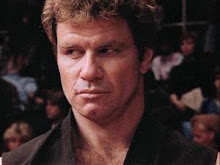Students are to complete the study island assignment writing1 by Friday.
Students have to complete the following assignment by tomorrow:
Montana 1948 epilogue (20pts)
1. On page 165 we learn that David's family moved away from Bentrock almost immediately, never to return. Somewhat suprisingly, it his his mother, not his father, who is the author of their departure. What does this show about her? About Wesley Hayden?
2. What do you make of David's remark on page 167 that "Frank's death was an unbridgeable gap between us?" And later, that "If there was any sense, any purpose at all in Uncle Frank's suicide, if he killed himself for any reason, it was so these people--his wife, his parents, his brother, his sister-in-law--could be reunited after his death"? Is Wesley saying something about the relationship between the future and the past for a Western town like Bentrock?
3. On page 169, looking into his empty house, David comments on the irony of his family's exile. What is that irony? What does it say about the price paid for justice?
4. David's father returns to his first career, becoming a lawyer. David is amazed by this. As he says on page 170, "after what I observed as a child in Bentrock, I could never believe in the rule of law again. That my father could continue his profession I attributed to his ability to segment parts of his life and keep one from intruding on another." What does he mean? Is this true? Has his father always demonstrated such an ability?
5. Consider also the ways in which his father's career change is an appropriate one, under the circumstances. How is being a lawyer different from being a peace officer?
6. On page 170 we learn that David has become a history teacher as an adult. He comments at length on the ways in which this is both appropriate and ironic, too. Explain. How do we usually remember and record history?
7. David makes a case, on page 171, that the incidents in Bentrock in the summer of 1948 directly caused the deaths of three people, in addition to his uncle: Len, his grandfather, and his father. Yet, all three died of natural causes. What does he mean? Consider the cause of death and circumstances in each case.
8. On pages 172-3, David as the adult narrator of the story briefly flashes back to a memory of an afternoon in the company of Marie and her boyfriend Ronnie. What's this a memory of? Why is it so compelling for him? Consider the actual game they play, and why it appealed to him at the time, appeals to him still. What sort of world is he remembering, even wishing for?
9. Consider the final scene of the novel, in which David's wife Betsy questions his father at Thanksgiving dinner. First of all, what's the significance of Thanksgiving? What does it commemorate?
Tuesday, October 28, 2008
Subscribe to:
Post Comments (Atom)


No comments:
Post a Comment